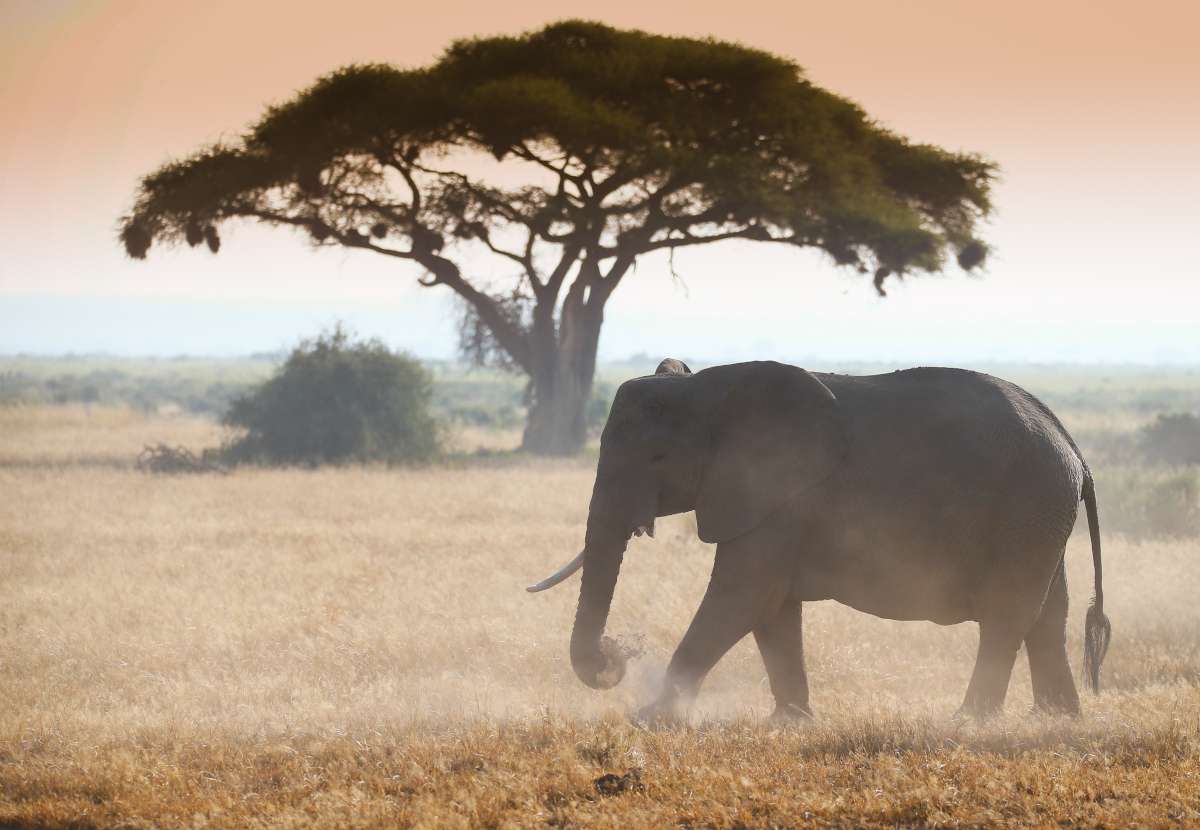
As animal species decline, plants that rely on them to spread their seeds could struggle to adapt to a changing climate
By
Plants are effective colonisers. Making use of the wind, the water or, for more than half of all plant species, animals, they spread seeds far and wide. Frugivores – animals such as gibbons that feed on the fleshy fruits of plants – eat and then excrete seeds away from the original tree. Bison carry grass seeds across plains in their hooves and fur. The African savanna elephant can carry seeds up to a record-breaking distance of 65 kilometres. This ability to shift geographical ranges will be crucial to plants when it comes to surviving climate change. However, just like the bison and all gibbon species, the African savanna elephant is endangered, its population down by 60 per cent over the past 50 years.
Researchers in Denmark and the USA have published a new study into how the loss of seed-dispersing animals could affect the resilience of forests and other natural ecosystems. According to their research, this loss has already reduced the ability of plants to move in pace with climate change by 60 per cent, and in some areas by as much as 95 per cent.
Evan Fricke, lead author of the study, explains that in order to reach these results, they needed to overcome a significant hurdle: most interactions between seed-dispersing animals and animal dispersed plants haven’t been studied much, if at all. They, therefore, pulled together existing data from all previous studies and used machine learning to develop models that could estimate the seed dispersal potential of any animal, even ones that are now extinct.

The researchers found that, historically, the decline of seed-dispersing animals has had the greatest impact on plants across the temperate regions of North and South America, Europe and southern Australia. ‘Our temperate ecosystems have lost a lot of the natural seed-dispersal function that they would have had, had extinctions and range contractions not occurred,’ explains Fricke, referring to the aurochs, bears and other large mammals that were once widespread in these regions.
Nevertheless, the poor conservation status of many seed-dispersing tropical animals puts plants in regions such as Southeast Asia and Madagascar most at risk today. Without the preservation of such animals, global seed dispersal could decline by a further 15 per cent. ‘The direct implication of this decline is that many plant species will be unable to keep pace with a changing climate,’ says Fricke. ‘That means the potential loss not only of plant biodiversity but of the ecosystem functions that those plants provide.’
As wildlife is lost, plants can no longer adapt and survive and forests become less sustainable, which reduces the amount of carbon they can store. They also lose their ability to support wildlife. Whole ecosystems are disrupted. The conclusion, Fricke says, is clear: we must conserve currently endangered species and restore the populations of important seed dispersers. ‘Independent of climate change, rewilding has the potential to benefit our ecosystems, but in a changing climate, it has the added benefit of increasing the climate resilience of those ecosystems,’ he says.




